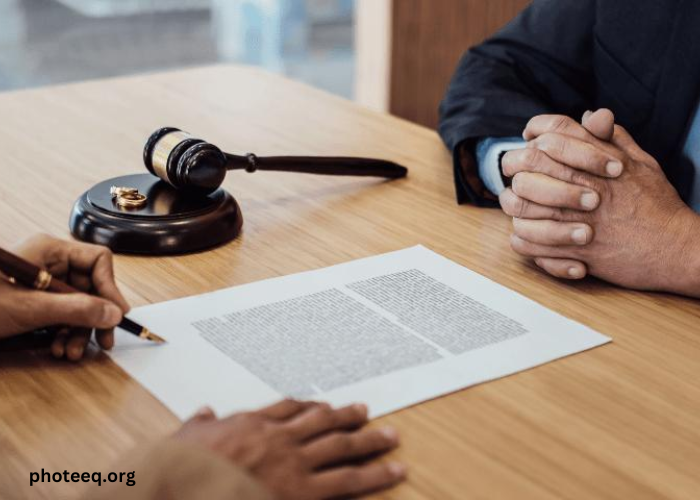When you’ve been injured due to someone else’s negligence, finding the right personal injury lawyer to handle your case is crucial. A skilled and experienced attorney can help you navigate the complex legal process and maximize your chances of receiving fair compensation for your injuries.
However, with so many lawyers to choose from, selecting the right one can be overwhelming. In this article, we will discuss the key factors to consider when choosing a personal injury lawyer for your case.
Experience and Expertise
One of the most important factors to consider when choosing a personal injury lawyer is their experience and expertise in handling cases similar to yours. Personal injury law is a specialized field, and an attorney with years of experience in this area will have a better understanding of the legal complexities involved in your case.
They will have dealt with a variety of personal injury cases and will be familiar with the tactics and strategies that insurance companies and defense attorneys may use to minimize or deny your claim. An experienced personal injury lawyer will know how to navigate through the legal system, gather evidence, and build a strong case on your behalf.
Additionally, expertise in personal injury law is crucial because it encompasses a wide range of accidents and injuries, including car accidents, slips and falls, medical malpractice, product liability, and more. Each type of case requires a specific set of knowledge and skills to effectively represent the client.
By choosing a personal injury lawyer with experience and expertise, you increase your chances of obtaining a favorable outcome in your case. They will have a track record of success in negotiating settlements or representing clients in court, ensuring that you receive the compensation you deserve for your injuries, medical expenses, lost wages, and pain and suffering.
Reputation and Reviews
Before hiring a personal injury lawyer, it’s important to research their reputation and read reviews from past clients. A lawyer with a good reputation in the legal community is more likely to be respected by insurance companies and other attorneys, which can work in your favor during negotiations or in court.
When it comes to personal injury cases, hiring the right lawyer can make all the difference in the outcome of your case. Before making a decision, it is crucial to thoroughly research the reputation of potential lawyers and take the time to read reviews from past clients.
A lawyer with a good reputation within the legal community is more likely to be respected by insurance companies and other attorneys. This can be beneficial during negotiations or if your case goes to court. Insurance companies are more inclined to take lawyers with a strong reputation seriously, which can ultimately impact the settlement amount offered to you.
Additionally, a lawyer with a positive reputation may have established professional relationships with other attorneys. This can be advantageous when it comes to negotiating settlements or navigating through complex legal procedures.
Resources and Support Staff
Personal injury cases often require significant resources to build a strong case. A reputable personal injury lawyer should have access to the necessary resources, such as expert witnesses, medical professionals, accident reconstruction specialists, and investigators, to support your case effectively.
Personal injury cases can be complex and require a thorough investigation to establish liability and secure compensation for the injured party. To build a strong case, a reputable personal injury lawyer should have access to a variety of resources. Expert witnesses play a crucial role in personal injury cases.
These individuals have specialized knowledge and expertise in specific areas relevant to the case. For example, a medical expert can provide professional opinions on the extent of the injuries and their long-term effects.
An accident reconstruction specialist can analyze the circumstances of the accident to determine causation and liability. These experts can provide valuable testimony to support the injured party’s claims. Medical professionals are also essential resources in personal injury cases.
Communication and Accessibility
Effective communication is vital when working with a personal injury lawyer. You should feel comfortable discussing the details of your case with them and confident that they will keep you informed about its progress.
Choose a lawyer who is attentive, responsive, and takes the time to address your concerns. When it comes to working with a personal injury lawyer, effective communication is absolutely crucial. It is important that you are able to openly discuss all the details of your case with your lawyer and feel comfortable doing so.
This means that you should choose a lawyer who not only listens attentively but also responds in a timely manner. A good personal injury lawyer understands the importance of keeping their clients informed about the progress of their case.
They should make an effort to regularly update you on any developments or changes, ensuring that you are always in the loop. This level of transparency is essential in building trust and confidence in your lawyer.
Fee Structure and Payment Options
Before hiring a personal injury lawyer, it’s important to understand their fee structure and payment options. Most personal injury attorneys work on a contingency fee basis, which means they only get paid if they win your case.
Typically, the attorney will receive a percentage of the settlement or award as their fee. This percentage can vary, but it is typically around 33% of the total amount recovered. However, it’s important to note that this fee does not include any expenses incurred during the legal process, such as filing fees or expert witness fees.
These expenses are typically paid separately by the client. It’s also important to discuss payment options with the personal injury lawyer before hiring them. Some lawyers may require an upfront retainer fee, while others may be willing to work on a payment plan.
It’s essential to have a clear understanding of the payment terms and ensure that they are feasible for your situation. In addition to the contingency fee and payment options, it’s essential to discuss any additional costs that may arise during the legal process.
This could include costs for obtaining medical records, conducting investigations, or hiring expert witnesses. Understanding these potential costs upfront can help you make an informed decision about hiring a personal injury lawyer.
Conclusion
Choosing the right personal injury lawyer is a crucial step in ensuring the success of your case. Consider factors such as experience, reputation, resources, communication, and fee structure when making your decision. By taking the time to research and select the right attorney, you can greatly improve your chances of receiving fair compensation for your injuries.





